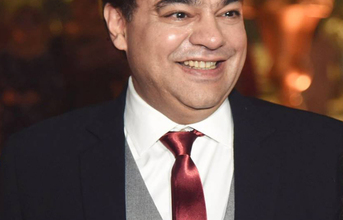
As one of the major players in the automotive ancillary industry segment, how do you view India's automotive future? How do you plan to leverage the same for Steelbird?
The two-wheeler segment is bound to grow as more and more people are migrating from cycle to a scooter and from a scooter to a motorcycle. The sales trend also show that this segment is growing at a brisk pace. As an ancillary to this segment, we also hope to leverage the upwards trend of sales for our products. Also, because of COVID, people are avoiding public transport and switching to their mode of transportation - the majority of which is a two-wheeler.
Tell us about Steelbird, its origins and current product portfolios…
Steelbird, one of the largest helmet manufacturing companies in Asia was launched in 1964 and I joined the family business at quite a young age, handling all the plants single-handedly at the age of 18. Despite the years I have already put in, I still feel there is a long way to go in terms of what we want to achieve- specifically promoting helmets as a mandatory accessory. It is a life-saving device, and I have personally given numerous talks on why it is vital, in several states. Apart from helmets, we also manufacture a wide range of related accessories, such as pannier boxes and auto accessories. That said, during the pandemic, we diversified into the healthcare sector manufacturing face shields, PPE kits, gloves, oximeter and masks besides OTC immunity booster medicines for the domestic market.
Throw some light on your manufacturing plant in Baddi, Himachal Pradesh as well as your other manufacturing plants in India.
We have six manufacturing plants in India, of which the biggest one is in Baddi, Himachal Pradesh. To boost our manufacturing capacity, in 2019, we decided to expand the Baddi manufacturing facility to over six lakh sq. ft. With this expansion, now we are manufacturing 22,000 helmets per day at this particular plant. With the expansion, we have given employment opportunities to over 2,000 skilled manpower and are selling around six lakh units per month.
How has the last fiscal been for you financially and how are you coping with the effects of COVID on your overall business activities?
We have witnessed a bare minimum effect on our business due to the pandemic. Thanks to two-wheeler sales, which has picked up rather quickly and that have given a positive boost to our helmet sales. We are now planning on expanding our manufacturing units. That said, we have recently opened our new shops in Ranchi, Patna and Noida and are planning on opening some more this year in various metropolitan cities.
India is on its way to becoming a globally recognised manufacturing hub. What opportunities and challenges do you see towards achieving this status?
The main challenge is still buying and selling the non-ISI marked helmets. Selling non-ISI marked helmets is equivalent to selling fake medicine. And just as fake medicines are harmful and poisonous, so are fake helmets. Many people are still not aware of how to differentiate between cheap and real helmets.
The good news is that the ban on helmets that are not ISI-certified has finally come into effect starting 1st June 2021. This means the selling of cheap and non-standardised helmets on the roadsides will no longer be available. The sale and stocking of these non-ISI helmets would consider as a criminal offence, as per the government norms.
This takes us one step closer to making riding a two-wheeler safer in India as the cheap roadside helmets that offer little or no protection in case of a crash will no longer be available.



























